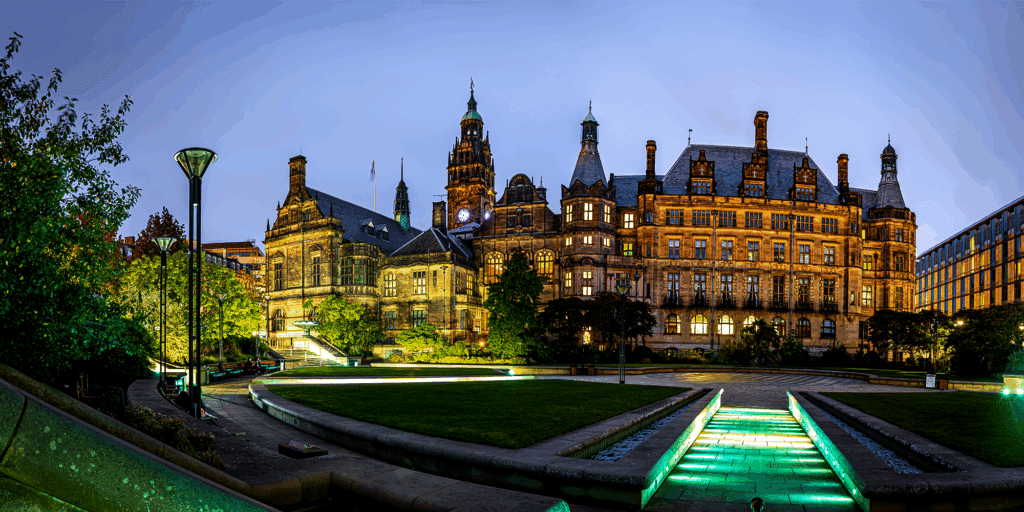- New research reveals nine in 10 consumers are happy to shop second-hand – due to concerns about the cost of living and the environment
- Almost half of Brits are more likely to purchase preowned items now than they would have five years’ ago
- The study coincides with Virgin Media O2’s new ‘Do One Thing’ campaign, which aims to inspire everyone to take positive action to protect the planet
- The campaign marks the launch of the company’s new sustainability strategy, the Better Connections Plan, which has bold commitments to cut carbon, champion circularity, and support communities as it upgrades the UK
The stigma of buying used goods is now a thing of the past, as nine in 10 consumers are now happy to shop second hand, due to concerns about the cost of living, the environment and a desire to own ‘unique’ items.
The study, commissioned by Virgin Media O2, coincides with the launch of its new Do One Thing campaign which aims to inspire people to make changes to their lifestyles – big or small – to help to protect the planet for current and future generations.
With more people wanting to lead greener lives, the poll found almost half of Brits are more likely to purchase preowned items now than they would have five years’ ago, with two thirds happy to buy used or refurbished mobile phones – one of the most sought-after second-hand items available.
A further three in 10 enjoy buying pre-loved clothing, while 35 per cent seek out retro furniture, and 24 per cent like sourcing old homeware goods. Almost eight in 10 (77 per cent) of those polled also saw shopping second-hand as one easy step they can take to be kinder to the planet.
More than a third (35 per cent) will shop for used items to get more bang for their buck, and a quarter (25 per cent) say second hand items are surprisingly good quality and good value.
More than half (55 per cent) believe people need to make small changes to their lifestyles to live more sustainably, with 43% wanting to protect the planet for future generations.
Recycling more, being clever with energy use, eating less meat and avoiding single-use cups are among the small changes Brits agreed should be made to be ‘greener’ – in addition to shopping second-hand.
British television presenter and sustainability influencer, Miquita Oliver, said: “If we all do one thing to protect our planet, we can collectively tackle the climate crisis and work towards creating a greener world.
“Whether it’s buying second-hand clothes, tech or furniture, recycling more, or using less single-use plastic, we can all do one thing, that when combined, can have a positive and lasting impact on the planet.”
The Do One Thing campaign is backed by Virgin Media O2’s new sustainability strategy, the Better Connections Plan, which sets out the company’s bold and ambitious commitments to use its purpose, people, and products to power a better, more connected, and greener future for its customers and communities nationwide.
Nicola Green from Virgin Media O2 said:
“With our ‘Do One Thing’ campaign, we want to inspire everyone to make changes to their lifestyles – big or small – to help protect the planet.
“It’s all part of Virgin Media O2’s new Better Connections Plan where we’re stepping up for people, communities and the planet. We’re cutting carbon faster, powering tech of the future to create cleaner towns and cities, helping to tackle e-waste, and donating devices and data to people in need so everyone can live in a better, more connected, and greener world.”
As part of the Do One Thing campaign, Virgin Media O2 is establishing a Youth Advisory Council – made up of Gen Z activists – to advise the company on the impacts of the climate crisis on young people. The Council will enable Virgin Media O2 to platform the views and voices of young people, working with them to develop innovative ways to tackle the climate crisis together.
In addition, the company is creating a £500,000 Eco Fund, which will be run in partnership with environmental charity, Hubbub, to support community groups across the country to run projects which encourage sustainable living to help to address the climate crisis and empower people to do one thing to protect the planet. Applications for grants will open later this year.
This forms part of Virgin Media O2’s new sustainability strategy, the Better Connections Plan, where the company has set new commitments to achieve net zero, will use its gigabit broadband and 5G mobile networks to support the transition to a low carbon future; and will focus on e-waste – the fastest growing waste stream in the world – by helping ensure that devices are re-used or recycled sustainably, or donated to people in need.
ENDS
Note to Editors
-
- Research carried out in May 2022 by OnePoll with a sample of 2,000 British adults aged 18+
press enquiries
press enquiries








